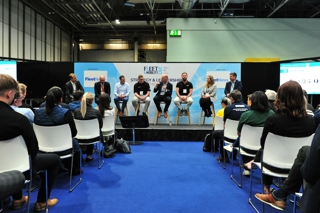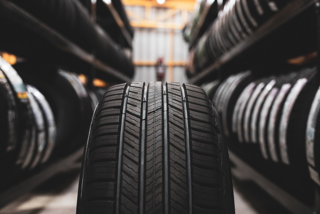Pressure is mounting on the UK Government to follow Scotland and Northern Ireland’s lead by cutting the drink-drive limit in England and Wales.
The Scottish Government reduced the legal alcohol limit for driving from 80mg to 50mg in 100ml of blood from December 2014, while the Northern Ireland Assembly voted to toughen its stance two weeks ago.
The bill also introduces a graduated penalty scheme that reflects the amount of alcohol involved, while the police will gain power to establish roadside checkpoints to provide for more routine breath checks.
The new measures will be introduced in 2018, yet the limit in England and Wales remains at 80mg, having been introduced almost 50 years ago in 1967.
David Davies, executive director of the Parliamentary Advisory Council for Transport Safety (PACTS), said: “A driver with 80mg blood alcohol concentration is 12 times more likely to be killed in a collision than a driver with a blood alcohol concentration of zero – but may still be within the law in England and Wales.”
The last independent inquiry into the drink-drive limit, which was conducted by Sir Peter North in 2010, recommended a reduction to 50mg.
“Since that time, road casualties, including drink-related casualties, have decreased very little if at all,” continued Davies. “There is a good case for allowing parliament to examine the issue again to see if further progress can be made.”
The UK Government remains opposed to bringing the drink-drive limit in England and Wales in-line with lower limit in Scotland.
Transport minister Andrew Jones told MPs at a recent transport select committee meeting: “Making progress on drink driving is not a question of limits alone; as well as enforcement it’s education.”
However, he added: “I will look at the evidence. I am cautious about making a change, but I certainly want to see continued progress.”
Drink-driving offences north of the border have fallen at almost twice the rate of the rest of the UK since the lower limit was introduced. Between December 2014 and August 2015, drink-driving offences fell in Scotland by 12.5% year-on-year, while offences fell by 6.6% in the rest of the UK.
However, Drink drive figures in Scotland rose by a third over the 2015 Christmas period.
Out of the 16,225 people tested between 3 December 2015 and 1 January 2016, 459 were found to be over the limit - around 1 in 35. During the same period over the previous festive season it was 1 in 50.
Research recently commissioned by PACTS and the RAC Foundation, suggests around 25 lives could have been saved across Great Britain last year if England and Wales had followed Scotland’s example, while a further 95 would have escaped being seriously injured.
Stricter laws would also have the majority support of the public, according to a poll by the Institute of Advanced Motorists (IAM).
Almost 70% of respondents – more than 2,400 people – said they would like to see the drink drive limit reduced.
A Fleet News poll was more evenly split, however, with just 58% in favour of adopting the same lower limit as Scotland.
One fleet manager, who wished to remain anonymous, told Fleet News: “If you have a lower limit, it’s inevitable that employers will see more company car and van drivers falling foul of the law in the morning if they’ve had a drink the night before.”
Around 5,500 people currently fail breath tests between 6am and midday every year, according to research from the Government campaign Think.
On average it takes around one hour for the body to break down one unit of alcohol, meaning it could take as long as 12 hours for the alcohol from four pints of higher strength beer – or four large glasses of wine – to leave your system.
Worryingly, the Think study also revealed that the most common reason for getting behind the wheel after a heavy night out drinking was to get to work.
























bob the engineer - 28/01/2016 18:45
Totally flawed policy. The people caught having accidents are not the ones who have had a pint or have some trace of alcohol the next morning who will be punished the most by this. The ones they drag out the wreckage are usually 2, 3 or 5 times over over the limit. Their dependence on alcohol being such that they still drive knowing they are too drunk. Lowering the limit will have zero, nill, zilch, nada effect on stopping these real dangers.